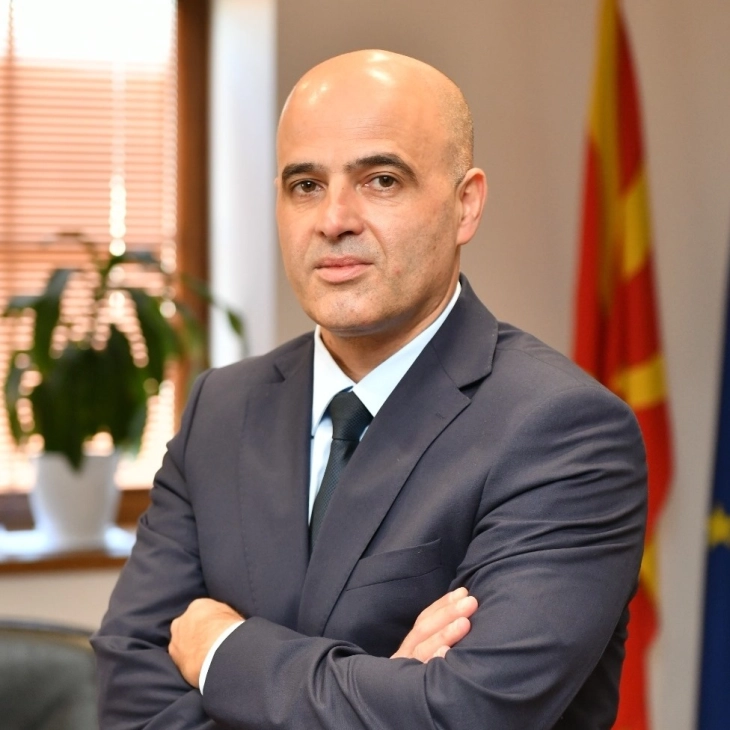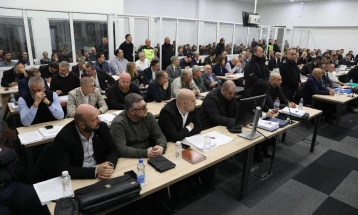Kovachevski: North Macedonia’s EU perspective strategically important for entire region

Skopje, 20 February 2022 (MIA) — The enlargement of the European Union with the countries of the Western Balkans is a matter of mutual strategic engagement because integration shows commitment to building a strong, stable and united Europe, a home of democratic and civilization values and forces, said Prime Minister Dimitar Kovachevski during a Munich Security Conference panel on the Western Balkans.
Prime Minister Kovachevski said the March 21, 2020, European Council recommendation for an unconditional start of North Macedonia’s negotiations with the European Union was “good news.”
“Unfortunately, this recommendation for an unconditional start has been conditioned by the blockade of the previous government of Bulgaria,” Kovachevski said.
However, he added, North Macedonia has many times proved it was a country of friendship and coexistence.
“This is how the world sees us today. We build friendships. We’re committed to finding mutually acceptable solutions,” he said, adding that the country had taken all necessary steps to unblock the EU enlargement process.
He highlighted that North Macedonia was working hard on implementing reforms related to EU chapters and legislation and on achieving European standards as a prerequisite for EU integration.
“But even more importantly,” he continued, “in the spirit of European good neighborly relations, the Bulgarian Prime Minister Petkov and I, in the two months since we both became Prime Ministers, have intensified the talks between North Macedonia and Bulgaria, sincerely willing to foster closeness, cooperation and trust, which we believe will lead us to solutions to our bilateral issues.”
Kovachevski said the Western Balkans operated on the principle of communicating vessels. Progress seen in one country, he observed, motivated progress in its neighbors.
“North Macedonia and Albania are losing valuable time. But the bigger question is: What is the European Union losing in this case?
“The EU's credibility is in question. This situation encourages and strengthens the interest of third parties in the region. If the EU shows absence or weakness in the Western Balkans, then third parties will have more opportunities to fill that gap, which is extremely important in terms of geostrategy.”
The EU has to keep its word and continue its enlargement of the Western Balkans, he said, noting that North Macedonia was committed to promoting regional peace, stability and greater cooperation for the economic benefit and prosperity of all citizens.
“We strongly believe it’s necessary for North Macedonia and all Western Balkan countries to have a crystal clear Euro-Atlantic and EU perspective,” he highlighted.
The PM also recalled that North Macedonia has been a candidate country since 2005.
“That’s 17 years,” he stressed. “And we signed the Stabilisation and Association Agreement exactly 21 years ago. Yet negotiations haven’t started so far.”
The PM also spoke of the country’s NATO membership.
“Last year, North Macedonia marked the 30th anniversary of its independence,” he said.
“The celebration had a special meaning because we celebrated this important jubilee as a full-fledged, 30th member of NATO.”
He said joining the Alliance was an important strategic achievement, providing stability and security for the country.
Other panelists included the Prime Minister of Albania, Edi Rama; the Vice President of the European Commission and EU High Representative for Foreign Affairs and Security Policy, Josep Borrell; and the OSCE Secretary General, Helga Schmid. mr/







